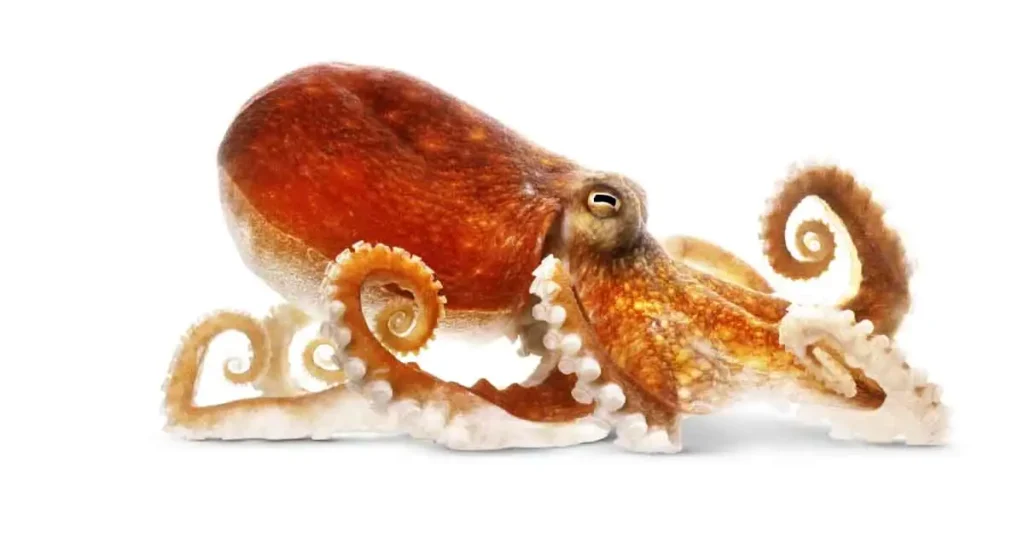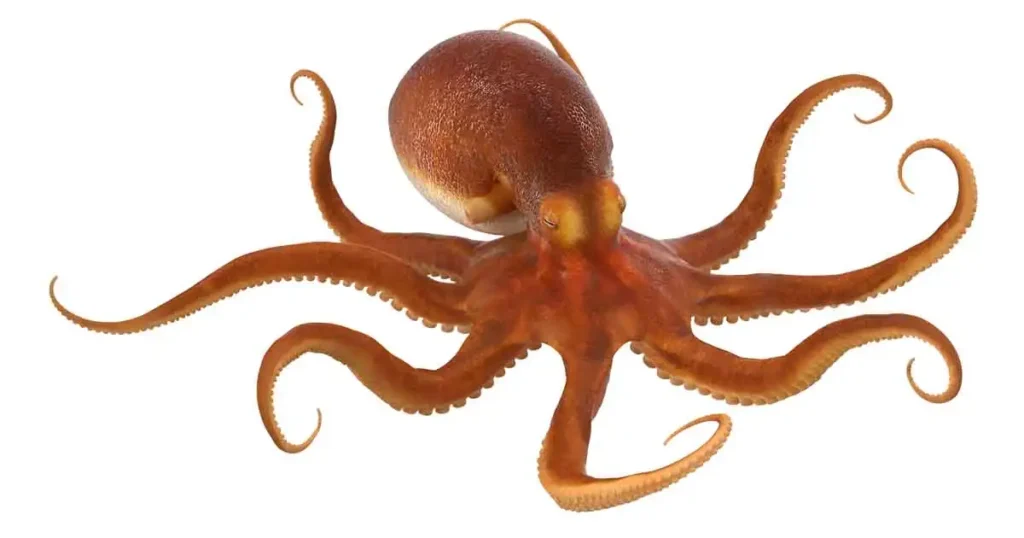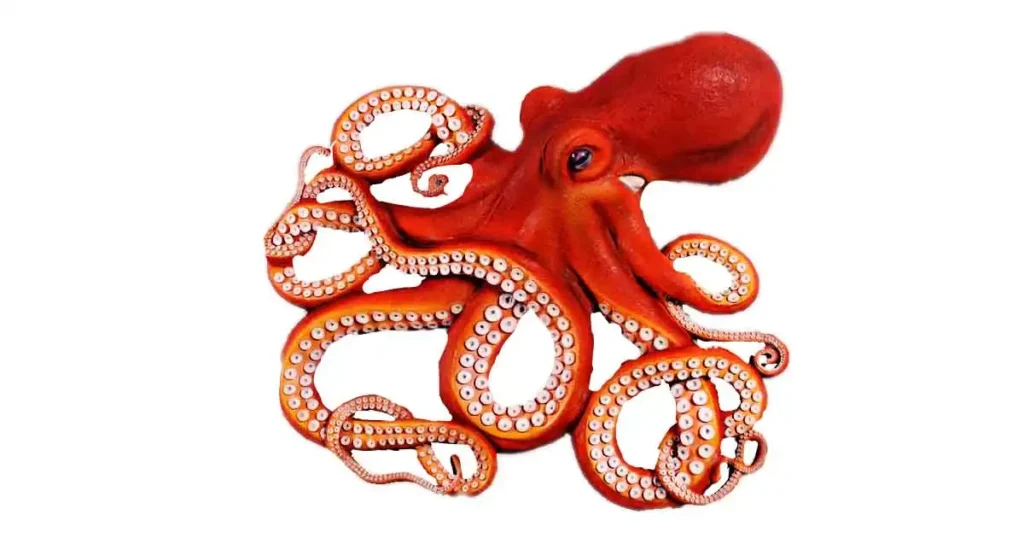Octopus has always been exotic to have on a restaurant menu. Some restaurants will offer different varieties; all of them will have something new to offer to the taste buds. Many may not notice octopus as a palatable food they want on a dish, but eating it does take away a lot of nutrition. Various types of octopus are obtainable in demand, and each one will have its own distinct pricing and need.

This article will go through the components of octopus and its pricing in the current market. We will also concentrate on the advantages and nutrients that come with octopus.
Octopus in Tamil pronunciation
Octopus in Tamil spells out identically as the english variant; the annunciation of the word octopus falls into the same circle as the english name. In brief, you will not have a problem learning the Tamil variant name of octopus, as both English and Tamil words for octopus are fundamentally identical. You can say in Tamil or English the name of an octopus in the local market, and they will quickly understand the type of seafood you are looking for.
There is no difference between shopping online vs local browsing. Most websites will use the english name of the octopus, even if the website is focused on the Tamil language. Octopuses are unique on the menu; you will find them in a seafood restaurant, but it cannot be easy to find the item in a normal restaurant. Speaking the English word for octopus will get you what you want without any further explanation.
| Tamil Name | Ākṭōpas |
| Kingdom | Animalia |
| Phylum | Mollusca |
| Class | Cephalopoda |
| Clade | Vampyropoda |
| Superorder | Octopodiformes |
| Order | Octopoda |
The popularity of the octopus has given way to many markets opening their arsenal to more seafood types. People interested in these exotic foods have caused a need to change their shift towards more acceptable foods. Octopus is getting very popular fast, thanks to social media.
Some octopus photos


Nutrients found in octopus
This section will cover all the nutrients of the octopus and the list of perks they offer to the bodies. Most individuals who consume octopus see them as a valuable food with many benefits and more uncommon side effects; they are very considerably low on calories, so if you are overlooking weight, you don’t have to worry about consuming them. Some people may not know octopus also has low amounts of fat and carbohydrates, but they do carry a lot of amino acids, which translates to protein in our body,
The nutrients mentioned beneath are taken from 85 grams of octopus boiled by moist heat cuisine method, which is very conventional in the coastal area of india. Most eateries do choose to cook the seafood or fry them.
| Calories | 139 |
| Carbs | 4 grams |
| Protein | 25 grams |
| Fiber | 0 grams |
| Fat | 2 grams |
| Vitamin B12 | 1,275% of the Daily Value (DV) |
| Selenium | 139% of the DV |
| Copper | 70% of the DV |
| Iron | 45% of the DV |
| Vitamin B6 | 32% of the DV |
| Zinc | 26% of the DV |
| Niacin | 20% of the DV |
| Phosphorus | 19% of the DV |
| Sodium | 17% of the DV |
| Pantothenic acid | 15% of the DV |
| Choline | 13% of the DV |
| Magnesium | 12% of the DV |
| Potassium | 11% of the D |
The number of nutrients here can count a lot of advantages to the body and overall diet. A dried octopus holds around 1,114 mg of salt compared to a freshly boiled octopus. A dried octopus possesses more salt compared to a cooked octopus. A canned octopus is sealed with oil and contains more fat. Deep-fried food will have more fat and calories than seafood roasted, grilled, stewed, and poached.
Octopus of all types holds rich source nutrients such as Vitamin B12 and selenium, producing it perfect for red blood cells, synthesizing DNA, and dangerous oxidation. They are considered heart-healthy nutrients that can reduce inflammation and defend against heart disease. In brief, seafood is low in calories and fat and contains vitamins B6, B12, copper, iron, zinc, and more.
Benefits of Octopus
Nutrients will show the list of benefits they have to offer to our bodies. Here we will take a look at all the benefits octopus has to offer. When we look at the Indian culinary scene, we will see many cultural traditions spin on the octopus dish. The cooking pattern can positively or negatively impact the nutrients available for the octopus.
1. Protein
Most protein that comes with the octopus is very lean as it contains low calories, fat, and cholesterol. If you take 25 grams of protein, then it equals 140 calories. Too many types of octopus fit the description of lean protein. It includes a decent amount of cholesterol compared to squid and shrimp.
2. Rich source of healthy unsaturated fats
Healthy unsaturated omega-3 fatty acid makes the octopus a healthier food that diminishes the possibility of heart disease. Some studies have linked the octopus to reducing the risk of cancers, cognitive function, and a healthy gut microbiome boost.
3. Antidepressant properties
Some studies present a more moderate consumption of octopus guides to lower measures of depression. The diet-rich omega-3 from seafood links to lessening depression. Some might not know, but octopus ranks 6th on the list of the best food for an antidepressant.
The study here is lacking, so we have yet to uncover all the potential benefits of eating octopus. So far, in our research on seafood, octopus makes an excellent choice for the nutrients side of things as it contains many healthy nutrients that offer some benefits to keep our health better.
Side effects of consuming octopus
Allergic reactions are a huge portion of seafood dishes, octopus offers an abundance of nutrient-dense protein sources, but they also carry side effects. Some people refrain from consuming food for various ethical reasons.
1. Salt present
Octopuses are heavy in salt, excluding the salt you need to add for the cooking process, so you can imagine the amount of salt you consume over one octopus. If your body is salt-susceptible, consuming octopus will lead to high blood pressure and a higher risk of heart disease.
2. Fried
Deep-fried octopus will look good and taste even better, but it will not be good for your health or body. Daily octopus consumption will lead to high blood pressure, heart disease, depression, diabetes, and more.
3. Mercury
Lastly, mercury exposure; is very common with most seafood. Along with mercury exposure, seafood also deals with heavy metals such as mercury and arsenic being part of their body. Pregnant and breastfeeding women should stay away from consuming octopus.
Cost of Octopus in tamil areas
The cost here will stay around 200 to 400 rupees; again, the high-quality octopus will have a separate price rating compared to the normal ones in the market. The quality of the octopus will always reflect in the price. Shopping for a premium-grade octopus, you will have to go above the average number. Local markets might have a more leisurely price setup on octopus; meanwhile, the online shopping site will differ from the regional market. Online markets tend to have more heightened prices since most local coastal zones will have a more downward price for the seafood.
Proper quality octopuses will come under the 200 rupees threshold; in some regional markets, you will encounter octopus under 100 rupees. But that is a periodic occurrence, as many coastal local markets will have deals on seafood purchases and the sales tag on the bulk purchases. Prices here never stay consistent, the picture is the same on the online store page.
If you want to see variety in the octopus shopping category, you have to jump online, as local markets will only cover small types of octopus. In the online market, you can access various kinds of octopus, ranging from cheap to expensive to moderate. The taste and the cooking pattern will also differ from one type to another. According to many, cooking the octopus is a very difficult process; going for quality will make the cooking task more daunting.
The location of your purchase will also change the cost of the octopus, make sure you are buying it from the right place to get a better discount and at the same time, good quality seafood. Here you can rely on a store with good service ratings for the authenticity of their services. Just jump online and scroll through the reviews to make an educated decision on your purchase.
Local scene of Octopus in Tamil areas
Sea foods are very popular in the coastal area, as chefs in the local zones extended their cooking range to include a variety of dishes. Seafood is becoming popular for many reasons; one is the sheer number of options it offers on the menu. Octopuses are no different than any other seafood in the market; the local scene of the Octopus cooking dishes is alive.
Octopus can be handled frozen, fresh, canned, and dried. Some prefer to consume the octopus, either raw or cooked. All seafood is usually taken fresh for cooking. In the local scene, curry seems to be the best choice in any seafood restaurant in the Indian coastal areas. As new spice ingredients have made the curries differ and taste better than the others.
The combination of tastes also influences the price scope, and diverse types of seafood follow the same design. You will find mixed Octopus curries grilled, baked, steamed, boiled, poached, stewed, and fried.
Octopus is problematic to cook; it could take additional texture profiles to make the dish taste properly. The variety of octopuses also counts when it comes to cooking the octopus. They are known to be very chewy; if not cooked well, things will not taste good.
The cooking art here is to make the octopus less chewing. It can get challenging, as octopus is a very skillful demanding seafood to cook; only professional chefs know how to deal with the octopus without messing anything up.
Most local eateries take at least 90 minutes to cook the octopus. It is long enough for the dish to have a less rubbery texture. But if you want to avoid dealing with the time, you can add canned octopus to your diet for faster consumption. Canned octopuses are also very popular as they bring convenience to the menu, perfect for people who prefer to cook quickly.
You can add canned octopus directly or mix it with garlic, herbs, spices, citrus juices, and some seasonings. Fresh octopuses are usually followed in frozen, dried, and canned variations, making the dish more appealing to look and taste.
The local scene here is booming with creativity; hop into any seafood restaurant you will see a wide range of dishes available. If you plan to try some of the new dishes, looking at the fast food scene for an eclectic taste is better.
Conclusion
Octopus in Tamil pronunciation is identical to the English name. In short, you will be fine with messing up the name of Octopus in Tamil; both Tamil and English names sound the same, with little to no distinction. There are advantages, but with it comes a range of side effects that are very typical or common with people who don’t fit well with the seafood types.
The cost and popularity of octopuses are very demanding in the cities. Coastal areas will have more manageable price ranges.
FAQ
Here are the most asked questions about octopuses on the internet.
Should you eat octopus?
Octopus can be consumed, as they are very demanding in the world’s coastal areas. In dense seafood areas, people prefer octopus or other exotic food. Places like Asia pacific countries such as Japan and Korea have octopus as their favorite dish. Most Mediterranean countries, such as Italy and Spain, also love to have Octopuses on the menu.
But the seafood trend carries the same side effects; anyone can get octopus cheap and expensive. This means coastal areas will have a lower variety of octopuses compared to the major city stores. Always ask your doctor before you add it to the diet plan.
Is octopus cheap?
Yes, the standard variants of octopus are very affordable. Many individuals from the seaside area do take Octopuses nearly every day. Octopus has a good source of nutrients and other vitamin values, making it perfect for the diet plan. Mixing the octopus with average ingredients makes the dish taste better, which is a common cooking tactic for many people who have been living in the coastal area for a long time.
The price of the restaurant food will differ, as different types of octopus dishes will have their separate asking prices for them.
Are octopuses salty?
Yes, they are very salty; one of the recommendations is to skip the octopus if your body is very salt sensitive. Eating octopus will not help your body; instead, it will worsen things. Ask your doctor for proper advice to learn more about your body and learn whether you should eat the octopus.

